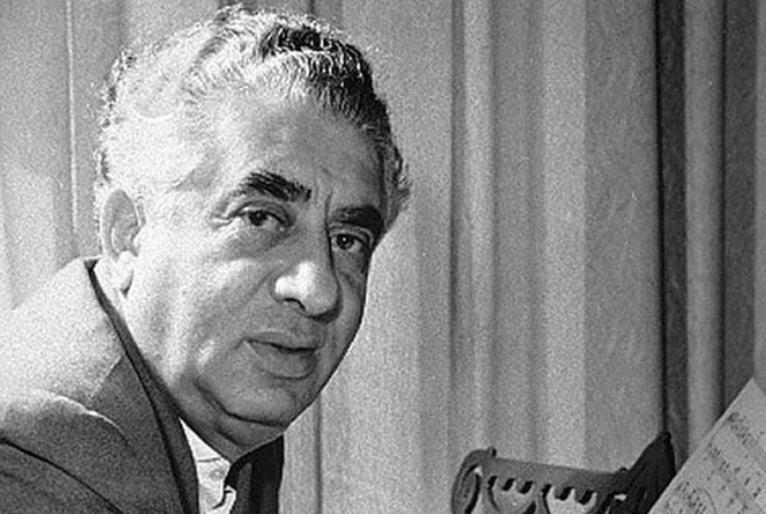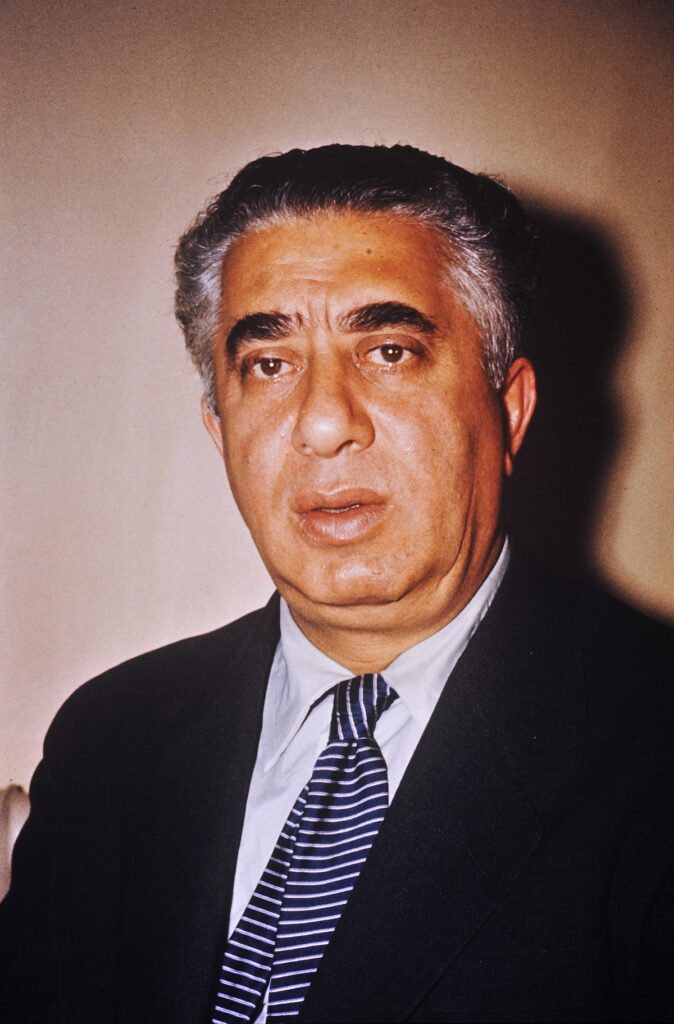Aram Khachaturian, born on June 6, 1903, in Tiflis (now Tbilisi), Georgia, was a prominent Soviet-Armenian composer of the 20th century. Renowned for his rich and vibrant compositions, Khachaturian’s music is characterized by its fusion of Armenian folk elements with classical and contemporary influences.
Khachaturian’s early life was marked by the diverse cultural influences of the Caucasus region. Raised in a multicultural environment, he was exposed to the music, dance, and traditions of various ethnic groups, especially the vibrant sounds of Armenian folk music. This early exposure left an indelible mark on his artistic sensibilities.
In 1921, Khachaturian moved to Moscow to pursue his musical education at the Gnessin State Musical College. He later continued his studies at the Moscow Conservatory, where he studied composition under the renowned Nikolai Myaskovsky. During this time, Khachaturian began to develop his unique compositional style, drawing inspiration from both Western classical traditions and the rich musical heritage of the Caucasus.
One of Khachaturian’s most iconic works is the ballet “Gayane,” composed between 1939 and 1941. The ballet, set against the backdrop of Armenian folk themes, features the famous “Sabre Dance,” which became a worldwide sensation. The rhythmic intensity and exotic melodies showcased in “Gayane” solidified Khachaturian’s reputation as a master of orchestration and a composer with a distinctive voice.
Khachaturian’s contributions to the world of classical music extend beyond ballet. His “Masquerade Suite,” adapted from the incidental music he wrote for the play by Mikhail Lermontov, and his three symphonies further demonstrate his ability to blend traditional and contemporary elements seamlessly.
However, like many artists of his time, Khachaturian faced challenges during the Soviet era. His music, initially celebrated for its nationalistic fervor, later fell under scrutiny by Soviet authorities for alleged formalism. Despite this, Khachaturian remained resilient and continued to compose, creating works that resonate with emotional depth and cultural resonance.
Aram Khachaturian’s legacy endures through his compositions, which continue to be performed and celebrated worldwide. His ability to capture the spirit of his Armenian heritage while integrating it into the broader context of classical music demonstrates the universality and timelessness of his artistic vision. Aram Khachaturian passed away on May 1, 1978, leaving behind a body of work that stands as a testament to his enduring influence on the world of classical music.


Comments are closed